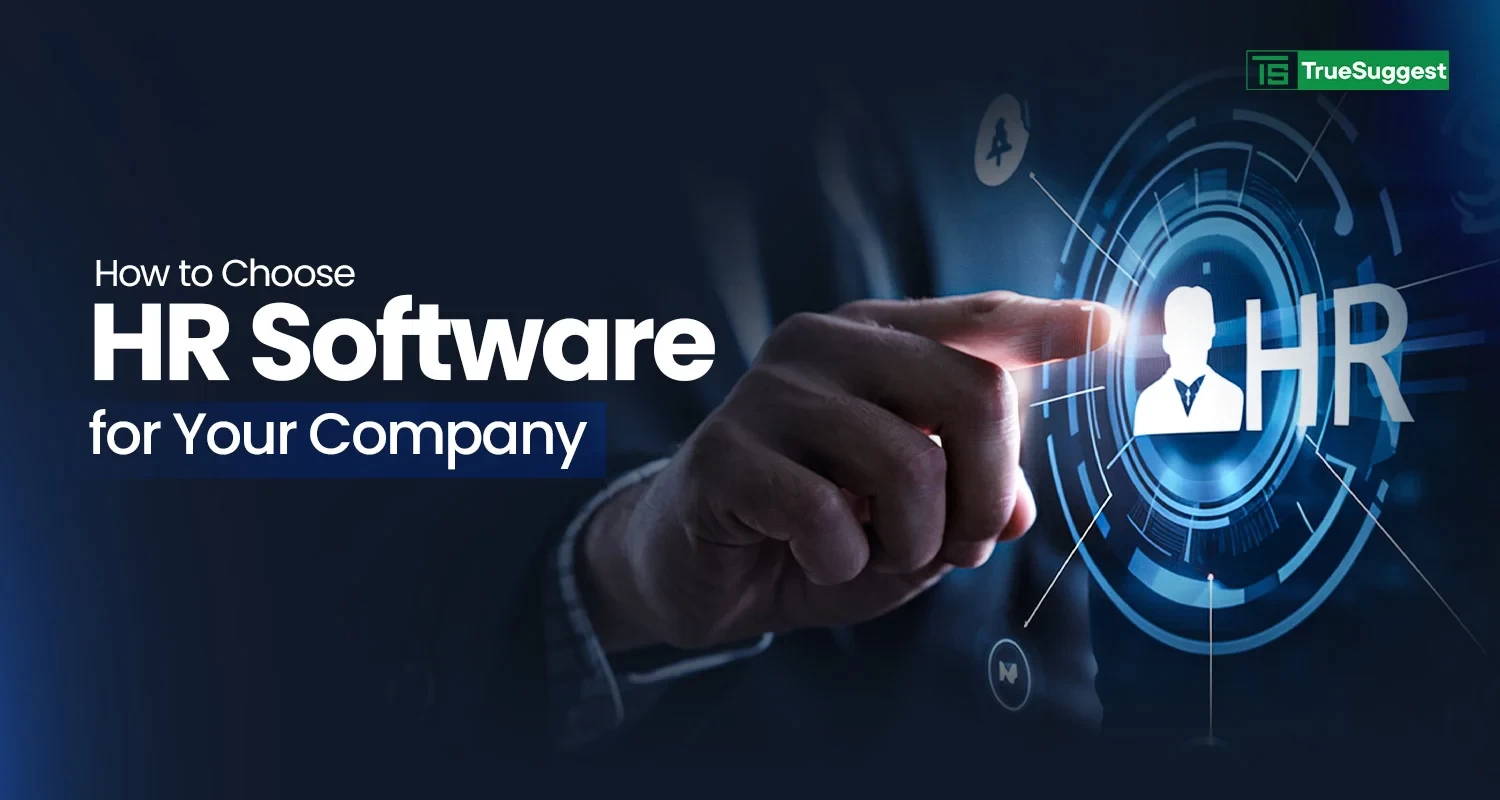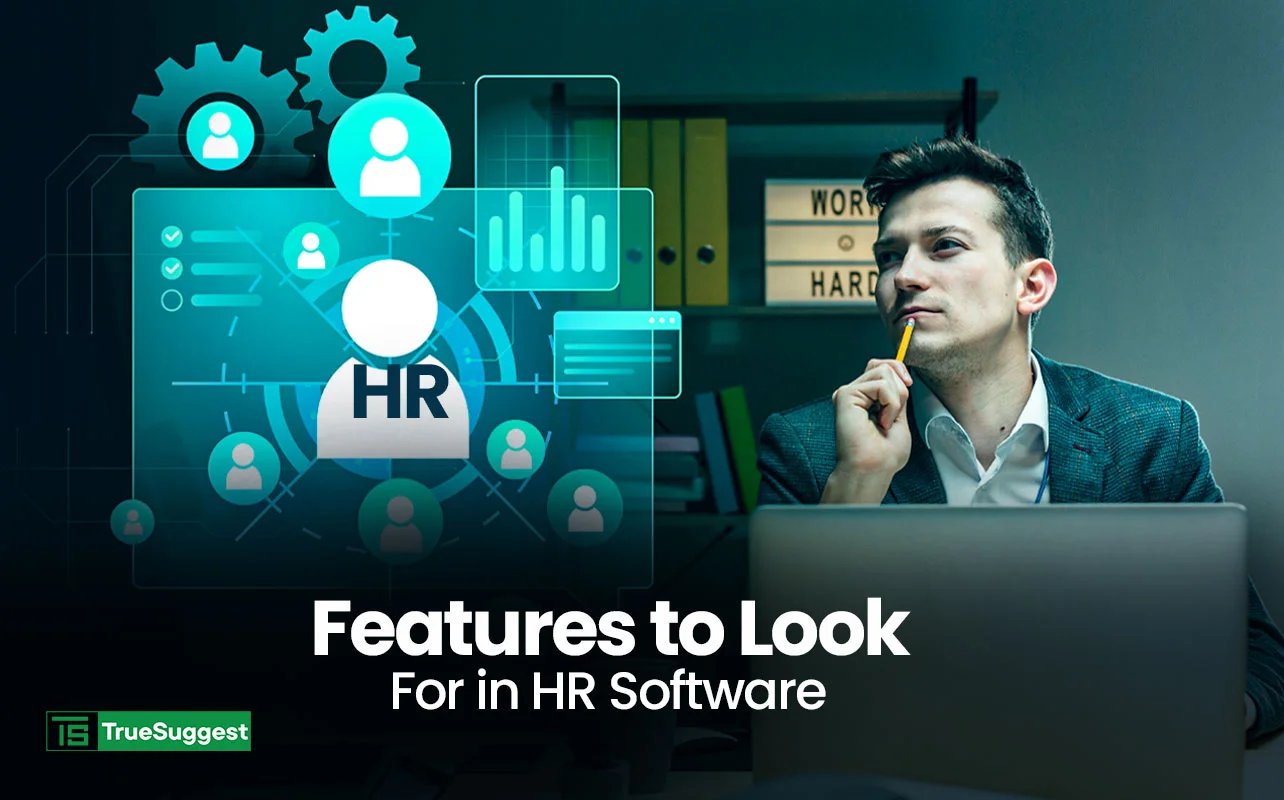


HR software is a digital solution designed to automate human resource, overall task and hr goals management. It helps manage employee data, payroll, recruitment process, salary, attendance, performance evaluations, benefits administration, and more. By centralizing these functions, HR software improves efficiency, reduces manual work, ensures compliance with labor laws, and provides valuable insights through data analytics.
It's essential for modern organizations to manage their workforce effectively and support decision-making in HR processes. HRIS, HRMS and HCM Software are the three main HR software solutions. In this guide we will explain how to choose hr software for your business.
HR software is a digital solution that automates and manages various human resources tasks, such as employee data management, payroll, recruitment, performance tracking, and benefits administration. It centralizes HR processes, enhances efficiency, ensures compliance with labor regulations, and provides valuable analytics for informed decision-making. Organizations use HR software to streamline operations, reduce manual work, and improve employee experiences.
HR software is designed to simplify and automate the complexities of managing an organization's workforce. It offers tools for handling core HR functions—like tracking employee information, managing payroll, and facilitating recruitment.
The software can range from basic systems focused on one aspect of HR to comprehensive suites covering all HR activities. By integrating these functions into a single platform, HR software helps organizations optimize their HR processes, ensuring accuracy, compliance, and better data-driven decision-making.
There are huge benefits of using HR software in any organization or a company. Here are main five key benefits that we have shown:

When selecting HR software, it’s crucial to consider both core and advanced features to meet your organization’s needs. Below is an introduction to key functionalities and a conclusion to help you understand what’s necessary for your business.
- Employee Database Management: Centralized storage for employee information, streamlining access and updates.
- Payroll Processing: Automates salary calculations, tax deductions, and payments, ensuring accuracy and compliance.
- Recruitment Tools: Manages job postings, applicant tracking, and interview scheduling to improve hiring efficiency.
- Performance Evaluation: Tracks employee performance, sets goals, and provides feedback mechanisms to support employee growth.
- Attendance Tracking: Monitors employee attendance, work hours, and leaves to ensure compliance and manage schedules.
Advanced Features:
- Employee Self-Service Portals: Allows employees to access and update their own HR information, submit leave requests, and view payslips.
- Mobile Access: Enables HR tasks to be managed on-the-go via mobile devices, providing flexibility and convenience.
- Analytics and Reporting: Provides in-depth insights through customizable reports, helping HR teams track trends and make data-driven decisions.
- Integration with Other Systems: Facilitates seamless integration with existing systems like accounting software or CRMs, ensuring smoother workflows.
- Customizable Workflows: Allows for flexibility in configuring HR processes to meet specific organizational needs.
When choosing HR software, focus on both the essential core features and advanced functionalities that will provide long-term value. By selecting a solution that fits your organizational size and specific needs, you can ensure the software supports efficiency, employee engagement, and strategic decision-making.
Scalability is a crucial factor when selecting HR software, especially for growing organizations. You need a solution that can adapt as your business expands, whether that means adding more employees, integrating new features, or accommodating increased data loads.
- Future-Proofing: Ensures that the software can handle increased demands without needing a complete overhaul.
- Modular Growth: Allows for adding new functionalities or expanding existing ones as your business needs evolve.
- Cost-Effective: Investing in scalable software saves long-term costs by reducing the need for frequent replacements or upgrades.
- User Capacity: Ensure the software can manage a growing number of users and employee records without performance issues.
- Feature Expansion: Look for software that allows you to add modules or features as your HR needs evolve.
- Vendors Research: Research multiple vendors, focusing on those with positive reviews and a strong market presence. Ensure the vendor offers customer support, gives training and updates to help the software scale along with your business.
- Cloud-Based Solutions: Cloud-based HR software often offers better scalability, allowing you to increase capacity without significant hardware investments.
- Growth-Oriented Solutions: Choose software that can scale with your organization’s growth, offering modular add-ons and customization options.
- Data Security: Ensure the software provides robust security features like encryption, access controls, and compliance with relevant data protection regulations.
- Compliance with Labor Laws: The software should help maintain compliance with local and international labor laws, providing automated updates and alerts.
- Customization: Look for solutions that offer easy to use and customizable workflows and dashboards to suit specific HR needs.
- Seamless Integration: The chosen HR software should integrate with your existing systems, such as payroll, accounting, and CRM, to ensure smooth operations. Consider the ease of migrating existing data into the new system and the level of support offered by the vendor.
Choosing scalable HR software is essential for businesses anticipating growth. It ensures that as your company expands, the HR system can keep pace, avoiding disruptions and additional costs. Prioritize solutions that offer flexibility, ease of expansion, and robust support to future-proof your HR operations.
A trial version of HR software is crucial for making an informed decision before committing to a purchase. Here’s why:
1. Hands-On Experience: Allows you to test the software’s features, interface, and usability in a real-world setting.
2. Assess Compatibility: Helps determine how well the software integrates with your existing systems and meets your organization’s specific needs.
3. User Feedback: Enables you to gather input from HR teams and other users, ensuring the software is user-friendly and effective.
4. Risk-Free Evaluation: Provides an opportunity to identify any potential issues or limitations without financial commitment.
A trial version is an essential step in the HR software selection process, ensuring the chosen solution aligns with your business needs, enhances productivity, and offers a positive user experience.
Choosing HR software directly involves the organization's needs, management goals, understanding essential features, and ensuring scalability. Selecting the right HR software is a strategic decision that impacts efficiency and employee satisfaction. Prioritize flexibility, scalability, and thorough testing to ensure the software meets both current and future needs.